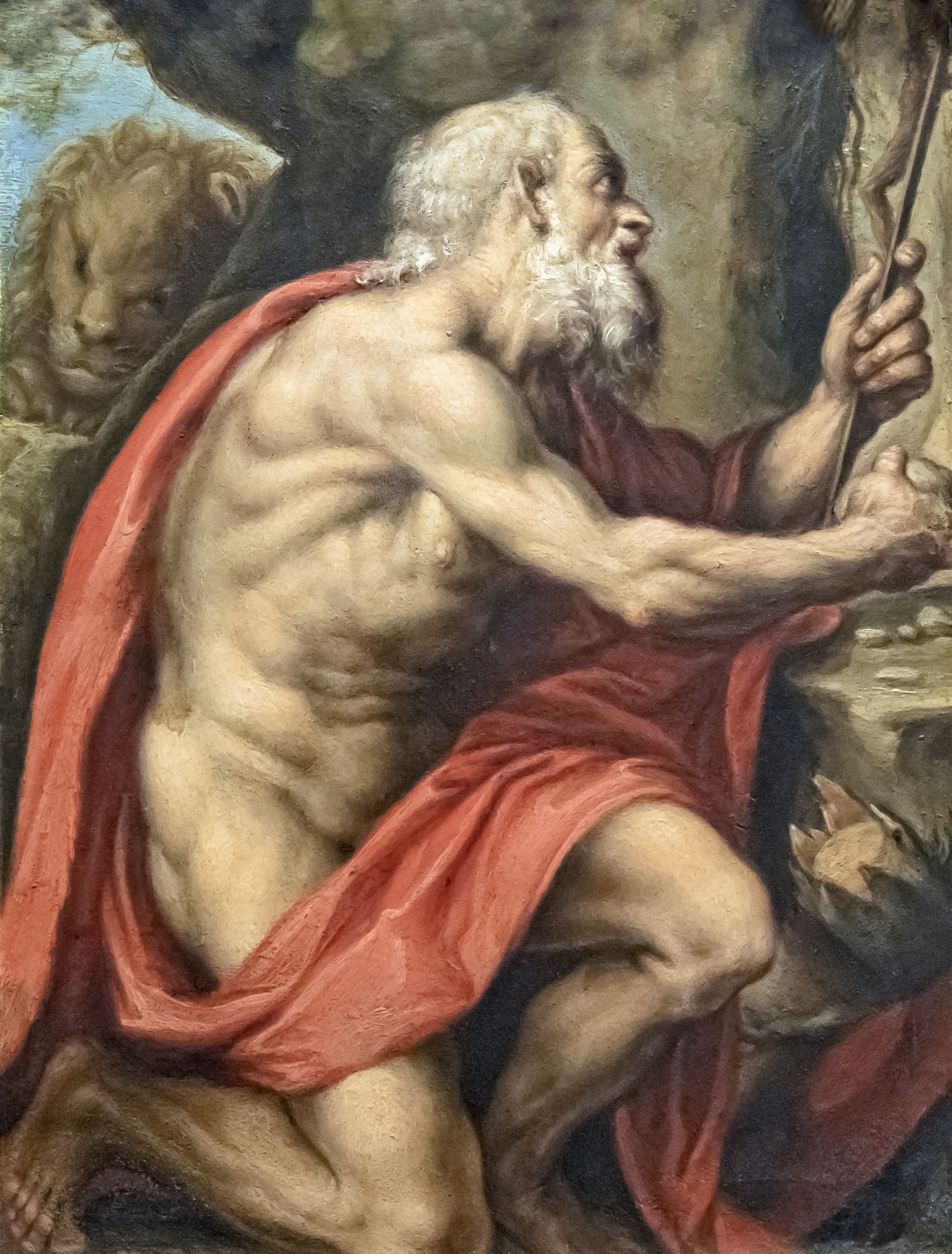Eusebio Hierónimo[1] , conocido comúnmente como san Jerónimo,[1] pero también como Jerónimo de Estridón o, simplemente, Jerónimo, tradujo, por encargo del papa Dámaso I , la Biblia del griego y del hebreo al latín. Es considerado Padre de la Iglesia, uno de los cuatro grandes Padres Latinos. La traducción al latín de la Biblia hecha por San Jerónimo, llamada la Vulgata y publicada en el siglo IV de la era cristiana, fue declarada en 1546 —por la Iglesia católica en el Concilio de Trento— la versión única, auténtica y oficial de la Biblia para la Iglesia latina, hasta la promulgación de la Nova Vulgata, en 1979, el que ahora es el texto bíblico oficial de la Iglesia católica.
San Jerónimo fue un célebre estudioso del latín en una época en la que eso implicaba dominar el griego. Sabía algo de hebreo cuando comenzó su proyecto de traducción, pero se mudó a Belén para perfeccionar sus conocimientos del idioma. En el año 382 corrigió la versión latina existente del Nuevo Testamento. Aproximadamente en el año 390 comenzó a traducir el Antiguo Testamento directamente del hebreo . Completó su obra en el año 405. Si Agustín de Hipona merece ser llamado el padre de la teología latina, Jerónimo lo es de la exégesis bíblica. Con sus obras, resultantes de su notable erudición, ejerció un influjo duradero sobre la forma de traducción e interpretación de las Sagradas Escrituras y en el uso del latín como medio de comunicación en la historia de la Iglesia.
Es considerado un santo por la Iglesia católica, por la Iglesia ortodoxa, por la Iglesia luterana y por la Iglesia anglicana.
En su honor se celebra, cada 30 de septiembre, el Día Internacional de la Traducción.
Wikipedia
✵
345 – 30. septiembre 420
•
Otros nombres
Svatý Jeroným,
Jeroným Hieronymus,
Jeroným
